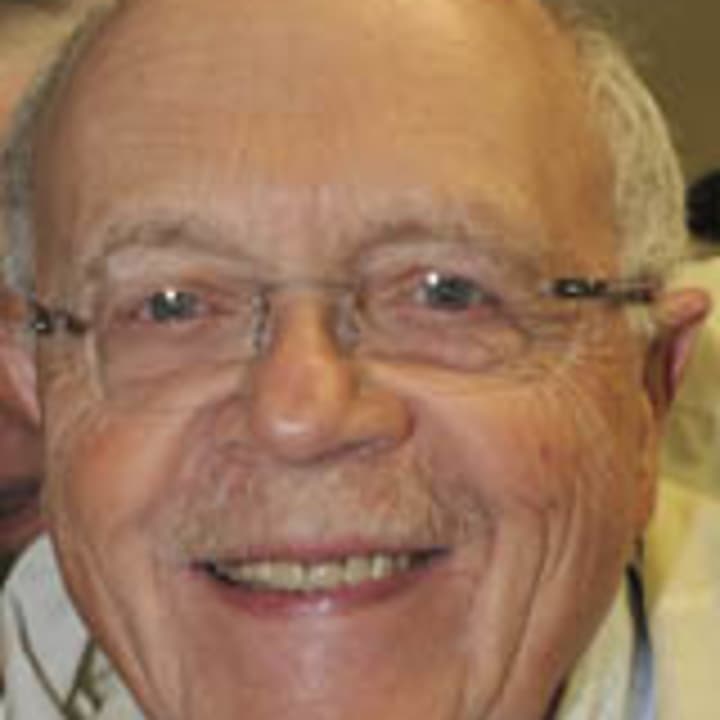Krauthamer is one of the member of Y's Men who, from time to time, give short talks about issues of relevance and interest to the group.
The cardiac expert called AF, an arrhythmia or abnormal heart rhythm, an age-related concern that is typically treated with medication. One danger is that blood flow may be compromised, and it may lead to strokes.
Some 5 million Americans suffer from AF—including about 4 percent of those over 60 and 10 percent of those over 80, Krauthamer said. The cost of treating AF is about $6.65 billion annually
The heart has four chambers—the atria on top, the ventricles below. Blood depleted of oxygen returns through the veins to the right atrium, then to the right ventricle and into the lungs, where it is oxygenated. It then moves to the left atrium, then the left ventricle, and from there it is circulated through the arteries to provide oxygen to the body.
The heart requires an electrical impulse to beat. The impulse travels through the two atria, causing them to contract, then goes through the wall between the lower chambers and activates the ventricles, the heart’s pumping chambers.
With AF, the electrical activity in the upper chambers is disjointed, he said. Each small bundle of muscle fibers in the atria contract independently and cause chaos, with over 600 impulses bombarding the ventricles every second.
The ventricles contract normally, though often at 140 to 160 beats per minute, Krauthamer said. This may bring on chest pressure, palpitations and perhaps a pounding heart beat, and can lead to weakness, fatigue, lightheadedness and even passing out.
Atrial fibrillation takes multiple forms. Paroxysmal starts suddenly, is rapid but typically stops on its own, usually within 24 hours. Persistent AF requires medication or an electric shock—cardioversion—to return to the normal rhythm. Permanent AF remains even after medication and attempts at cardioversion.
The major and serious consequence of AF is stroke because the atria do not contract normally, and so do not empty completely. This can result in blood pools, then clots, with the danger that a piece of clot may break free, travel to the brain and cause a stroke.
AF can be treated with medication, often with an anticoagulant. The medicine will not prevent AF but will significantly reduce stroke risk, he said.
Longstanding and uncontrolled AF can lead to congestive heart failure as a chronic rapid pulse wears out the heart, Krauthamer said.
Among factors that increase the risk of developing AF are age, pre-existing heart conditions, hypertension, sleep apnea, over use of alcohol—particularly binge drinking—obesity, an overactive thyroid, and metabolic syndrome.
To ward off AF, he suggested weight loss, exercise, good diet, and control of blood pressure.
With proper medication, many with AF live long and functional lives, Krauthamer said.
Click here to follow Daily Voice Westport and receive free news updates.


